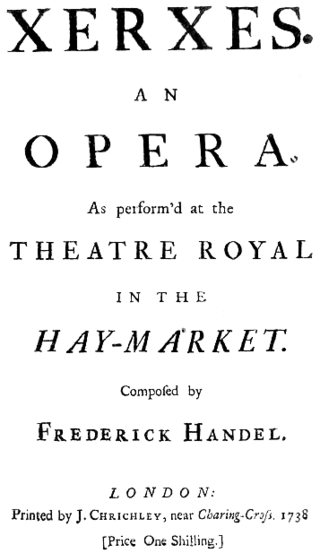
Serse is an opera seria in three acts by George Frideric Handel. It was first performed in London on 15 April 1738. The Italian libretto was adapted by an unknown hand from that by Silvio Stampiglia (1664–1725) for an earlier opera of the same name by Giovanni Bononcini in 1694. Stampiglia's libretto was itself based on one by Nicolò Minato (ca.1627–1698) that was set by Francesco Cavalli in 1654. The opera is set in Persia about 470 BC and is very loosely based upon Xerxes I of Persia. Serse, originally sung by a mezzo-soprano castrato, is now usually performed by a female mezzo-soprano or countertenor.
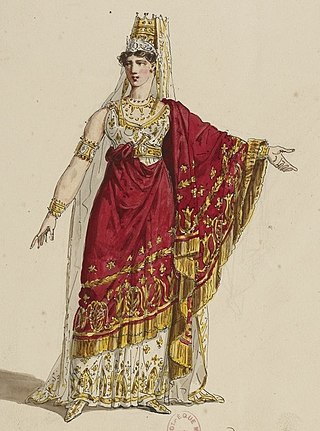
Semiramide is an opera in two acts by Gioachino Rossini. The libretto by Gaetano Rossi is based on Voltaire's tragedy Semiramis, which in turn was based on the legend of Semiramis of Assyria. The opera was first performed at La Fenice in Venice on 3 February 1823.

Ariodante is an opera seria in three acts by George Frideric Handel. The anonymous Italian libretto was based on a work by Antonio Salvi, which in turn was adapted from Canti 4, 5 and 6 of Ludovico Ariosto's Orlando Furioso. Each act contains opportunities for dance, originally composed for dancer Marie Sallé and her company.

Flavio, re de' Longobardi is an opera seria in three acts by George Frideric Handel. The Italian-language libretto was by Nicola Francesco Haym, after Matteo Noris's Flavio Cuniberto. It was Handel's fourth full-length opera for the Royal Academy of Music. Handel had originally entitled the opera after the character of Emilia in the opera.
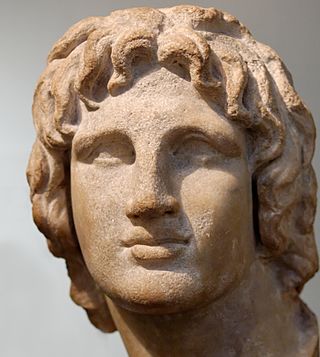
Alessandro, is an opera composed by George Frideric Handel in 1726 for the Royal Academy of Music. Paolo Rolli's libretto is based on the story of Ortensio Mauro's La superbia d'Alessandro. This was the first time the famous singers Faustina Bordoni and Francesca Cuzzoni appeared together in one of Handel's operas. The original cast also included Francesco Bernardi who was known as Senesino.

Arminio is an opera composed by George Frideric Handel. The libretto is based on a libretto of the same name by Antonio Salvi, which had been set to music by Alessandro Scarlatti. It is a fictionalisation of events surrounding the Germanic leader Arminius, who defeated the Romans under Publius Quinctilius Varus at the Battle of the Teutoburg Forest in AD 9, and his wife Thusnelda. The opera was performed for the first time at the Covent Garden Theatre on 12 January 1737.

Atalanta is a pastoral opera in three acts by George Frideric Handel composed in 1736. It is based upon the mythological female athlete, Atalanta, the libretto being derived from the book La Caccia in Etolia by Belisario Valeriani. The identity of the librettist is not known.

Scipione, also called Publio Cornelio Scipione, is an opera seria in three acts, with music composed by George Frideric Handel for the Royal Academy of Music in 1726. The librettist was Paolo Antonio Rolli. Handel composed Scipione whilst in the middle of writing Alessandro. It is based on the life of the Roman general Scipio Africanus. Its slow march is the regimental march of the Grenadier Guards and is known for being played at London Metropolitan Police passing out ceremonies.

Tolomeo, re d'Egitto is an opera seria in three acts by George Frideric Handel to an Italian text by Nicola Francesco Haym, adapted from Carlo Sigismondo Capece's Tolomeo et Alessandro. It was Handel's 13th and last opera for the Royal Academy of Music (1719) and was also the last of the operas he composed for the triumvirate of internationally renowned singers, the castrato Senesino and the sopranos Francesca Cuzzoni and Faustina Bordoni.

Faramondo, HWV 39, is an opera in three acts by George Frideric Handel to an Italian libretto adapted from Apostolo Zeno's Faramondo. The story is loosely based upon the legend of Pharamond, a mythological King of the Franks, circa 420 AD, and the early history of France. The opera had its first performance at the King's Theatre, London, on 3 January 1738.

Il pastor fido is an opera seria in three acts by George Frideric Handel. It was set to a libretto by Giacomo Rossi based on the famed and widely familiar pastoral poem of the 'Il pastor fido' by Giovanni Battista Guarini. It had its first performance on 22 November 1712 at the Queen's Theatre in the Haymarket, London.
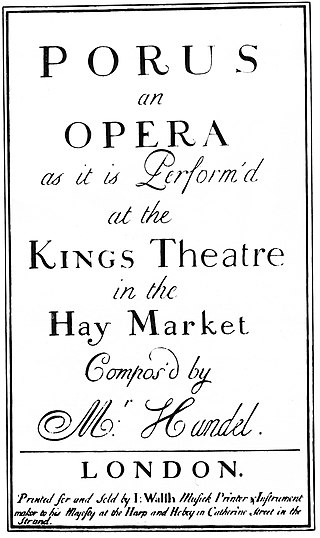
Poro, re dell'Indie is an opera seria in three acts by George Frideric Handel. The Italian-language libretto was adapted from Alessandro nell'Indie by Metastasio, and based on Alexander the Great's encounter with Porus in 326 BC. The libretto had already been set to music by Leonardo Vinci in 1729 and was used as the text for more than sixty operas throughout the 18th century.

Floridante is an opera seria in three acts by George Frideric Handel. The Italian-language libretto was by Paolo Antonio Rolli after Francesco Silvani's libretto for Marc'Antonio Ziani dramma per musica La costanza in trionfo of 1696.

Lotario is an opera seria in three acts by George Frideric Handel. The Italian-language libretto was adapted from Antonio Salvi's Adelaide.The opera was first given at the King's Theatre in London on 2 December 1729.

Roberta Invernizzi is an Italian soprano. She originally studied piano and double bass before turning to singing. She specialises in early music from the baroque and classical period of music.

Partenope is an opera by George Frideric Handel, first performed at the King's Theatre in London on 24 February 1730. Although following the structure and forms of opera seria, the work is humorous in character and light-textured in music, with a plot involving romantic complications and gender confusion. A success with audiences at the time of its original production and then unperformed for many years, Partenope is now often seen on the world's opera stages.
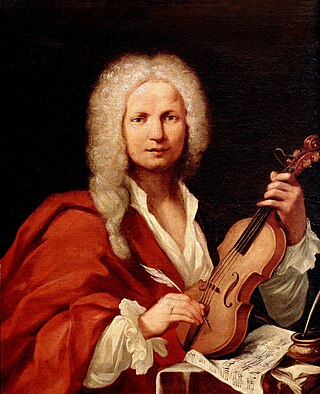
Ercole su'l Termodonte is a baroque Italian opera in three acts. In 1723, it became the sixteenth opera set to music by Antonio Vivaldi. Its catalogue number is RV 710. The libretto was written by Antonio Salvi. The opera was premiered on 23 January 1723 in Rome's Teatro Capranica. Due to a papal edict preventing women from appearing onstage in Rome, it premiered with castrati singing all the female roles. Vivaldi was both conductor and violin soloist.
Romina Basso is an Italian mezzo-soprano with an extensive discography of baroque opera recordings. She is particularly noted for her performances of Vivaldi.
Antigono is a three act opera seria composed by Christoph Willibald Gluck. It premiered February 9, 1756, at the Teatro Argentina in Rome. The Italian libretto was written by Pietro Metastasio, who was considered to be the most important opera seria librettist. Antigono was the only opera that Gluck ever premiered in Rome. This allowed him to reuse several arias and an entire introduction from some of his other operas, L'innocenza giustificata, Le cinesi, and La danza.















